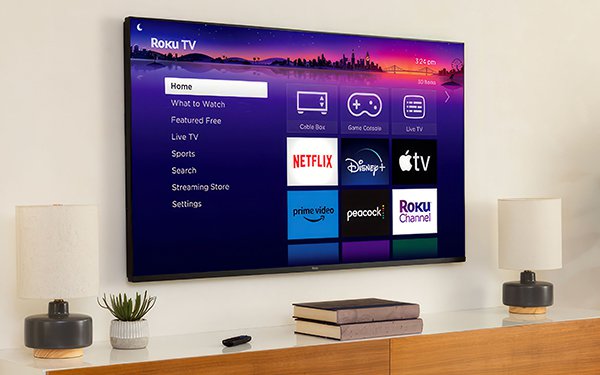
Roku competitors are now coming from all over the place.
At the
CES event (the Consumer Electronics Show) a lot of buzz was created around many diverse new and existing players. That list includes TiVo, Xumo, Trade Desk and Walmart-Vizio.
Demand-side
advertising platform The Trade Desk is in the process of creating an operating system, Ventura (named after its current headquarters in Ventura, CA.). But CEO Jeff Green says that it has a more narrow
scope than one would assume:
“This innovation has to come in the OS, and it has to come from a company that brings the objectivity of not owning any streaming TV content.” Green
and other Trade Desk executives want to pursue an “open” marketplace.
Adds Green: “At The Trade Desk, all we want is a fair marketplace, where supply chain costs are
minimized, and advertiser trust can thrive.”
advertisement
advertisement
Perhaps the biggest threat to Roku, however, comes by way of Walmart's recent deal to buy TV manufacturer Vizio, and its Smartcast OS.
Michael Nathanson, co-founder/media analyst for MoffettNathanson
Research, says that in the third quarter of 2024, 25% of Roku’s device business -- Roku-brand, Roku operating-based TV sets -- came from Walmart.
“Walmart will likely
prioritize Vizio branded TV sets in stores and leverage Vizio data and engagement to accelerate the continued build-out of Walmart Connect – the company’s retail media business in the
U.S.”
At one point, in 2023, Walmart share of Roku device revenue was at a 41% share.
Good news for Roku: Much of its device revenue share is spread out: Walmart, 25%; Best Buy
23%; Target, 16%; and Amazon, 15%.
At the same time, big cable-TV and broadband focused companies like Comcast Corp and Charter -- partners in Xumo -- have been looking to ramp up their
efforts in streaming distribution.
Those legacy media companies are continuing to seek more partnerships now through their expanded efforts around their linear cable/broadcast TV bundles which
include streaming platforms.
Xumo has been expanding its own TV manufacturers deals. At CES, it announced a deal with Sharp, adding to other deals including Pioneer, Element and Hisense.
Also in the hunt are Google's Android TV, Samsung Tizen, and LG’s WebOS. And let’s not forget existing streaming distributors that still have a lot of wherewithal: Amazon Fire TV and
Apple’s Apple TV.
Of course, it’s not about the TV sets sales itself -- especially with plunging retail prices. It’s all about what revenues those operating systems --
through shared advertising sales or shared subscriptions fees -- can bring in.
Much of this means mergers and acquisitions of perhaps or other promising streaming OS systems will likely be on
the way, increasingly complicating consumers’ TV ecosystem decisions.